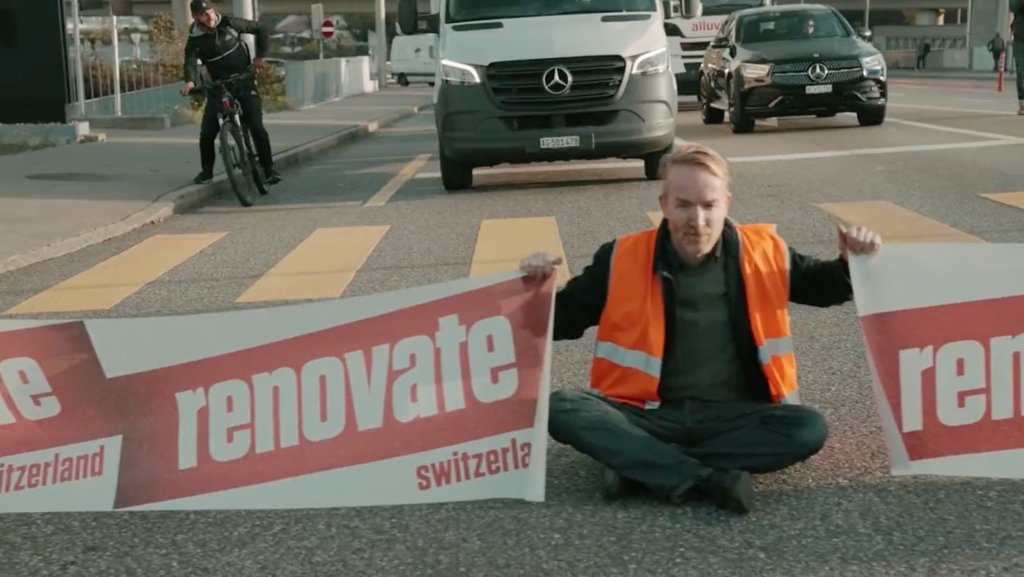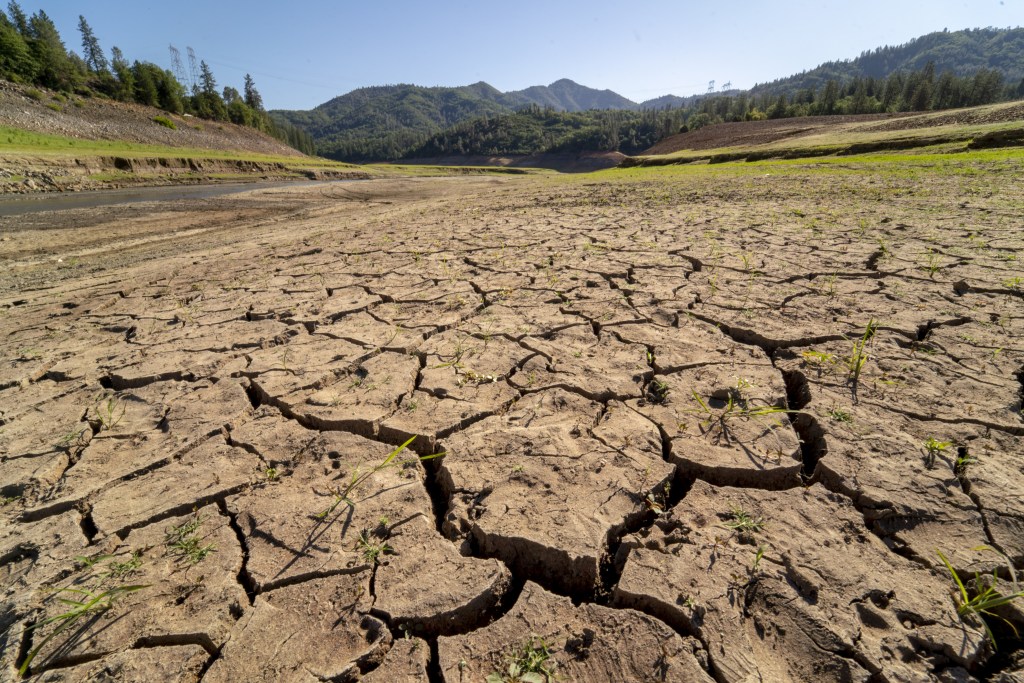On Tuesday morning, an IPCC report author and climate scientist was taken into police custody while protesting alongside activists blocking traffic in Bern, Switzerland.
The scientist, Julia Steinberger, is a professor of ecological economics at the University of Lausanne and contributed to the 6th Assessment Report from the UN’s Intergovernmental Panel on Climate Change, specifically its third chapter on emissions mitigation pathways that are still possible this century.
Videos by VICE
The protest was organized by Renovate Switzerland group, and advocated for improved energy efficiency in buildings. Activists glued themselves to the road as part of a blockade; it was the fifth action by the group in the last week, according to local news reports. In a video of the protest, Steinberger was carried off by police and placed in a van as she said in French, “non-violent civil action is important. We don’t have much time left.”
On its website, Renovate Switzerland paints a dire picture of the climate crisis. Its page on explaining the urgency behind climate protests opens up with a dark quote from the United Nations Secretary general, Antonio Guterres, who said in April that the IPCC report “is a litany of climate policies. It’s a record of shame, cataloging the empty promises that set us firmly on the path to an unlivable world.”
Renovate Switzerland also points to multiple IPCC reports, as well as a study that suggests that by 2070 some 3.5 billion people will be forced to migrate because of inhospitable living conditions thanks to climate change.
“This summer, Switzerland recorded the second hottest summer since measurements began in 1864. Record-breaking heat wave summers such as we have experienced this year will be the norm for an average summer by 2035,” the group’s website states. “Such heat brings its share of disasters and suffering. In Switzerland, glaciers are disappearing at a breakneck pace, forests are burning or dying, agricultural land is drying up, harvests are failing, lakes and rivers are evaporating. Elsewhere in the world, millions of people are losing their place of residence or are already suffering from famine.”
In response to the Swiss government’s energy conservation plan in the face of gas and power shortages, Renovate Switzerland announced it will commit to protests to pressure Switzerland’s government to carry out an extensive housing renovation plan that would improve insulation and energy efficiency. “With regard to energy savings, [the government] discharges its responsibilities by counting on the small voluntary gestures of the population and businesses,” the group told local news.
“The thermal renovation of buildings… is logical, socially progressive… it creates jobs,” Steinberger said at the protest in a video shared by Renovate Switzerland. “But the government does not do it. So we see that we are at an impasse.”
The IPCC report, and the chapter worked on by Steinberger specifically, offer gloomy outlooks for the future beyond Switzerland. In it, scientists find that humanity will likely exceed 1.5 degrees Celsius within the next two decades unless steep cuts are made. By 2050, we can expect famines, droughts, and mass migrations as extreme weather events become more common.
Heatwaves, to take one example, already kill thousands and will only become deadlier as we surpass 1.5 degrees Celsius of warming. One recent UN and Red Cross report suggests that “projected future death rates from extreme heat are staggeringly high—comparable in magnitude by the end of the century to all cancers or infections diseases—and staggeringly unequal, with people in poorer countries seeing far greater levels of increase.”
Over the years, IPCC reports have painted an increasingly grim picture for what needs to be done. Earlier this year, an author of the IPCC’s synthesis report—a compilation of what we’ve learned about climate change thus far—told The Atlantic that there are three broad buckets of scenarios to anticipate. One is that a third of Earth’s total energy production goes towards removing carbon from the atmosphere while decarbonizing everything, a situation deemed nearly impossible. A second envisions that energy demand nearly collapses, decarbonization and carbon removal continue, and energy efficiency outpaces its historical rate of progress—all at the same time. The most likely one is that we fail to limit global temperature growth to 1.5 degrees Celsius.
In the face of all this, then, it makes sense that Steinberger decided to join protests to block traffic. There’s a growing debate over the best way to pressure governments and corporate actors to act, from civil disobedience to destruction of fossil fuel infrastructure, but what is clear is that something needs to be done to mobilize more action lest we find ourselves in some of the worst climate scenarios.
A photo posted by Renovate Switzerland later showed Steinberger standing alongside fellow activists outside a police building. “Today’s 7 sympathizers are free again, they’re fine and will do it again as long as BR doesn’t have a plan to #RenovateSwitzerland,” the group said.
Steinberger did not respond to Motherboard’s request for comment.




